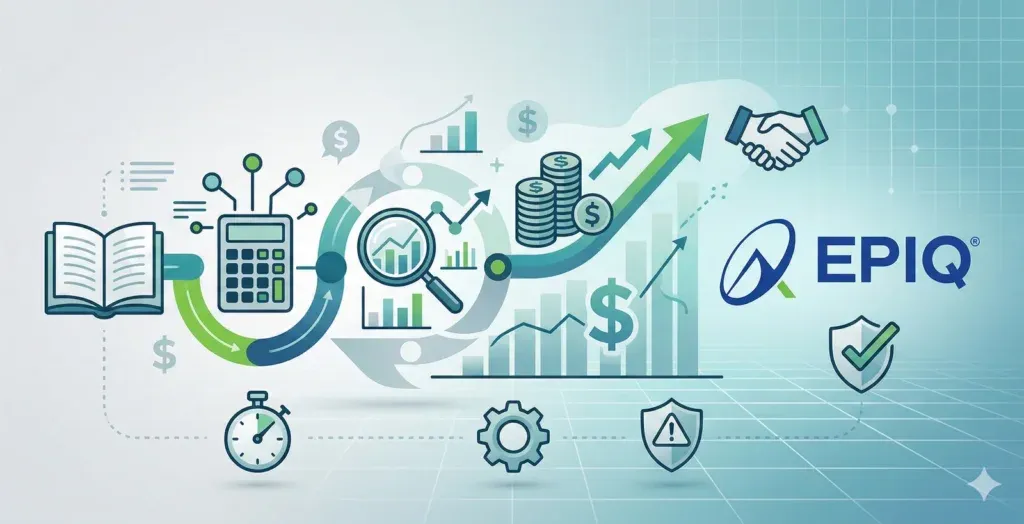Time is an irreplaceable resource that cannot be replaced, so organizations must use it wisely when allocating their budgets. Hiring full-time staff to manage day-to-day ERP functions or hiring an IT consultancy to drive an expensive ERP system may become costly over time, especially if full-time staff members or consultants need to cover vacation, sick days, and other absences. Partnering with an affordable JD Edwards managed services provider is much more cost-effective.
Managed services partners offer expert support for every aspect of EnterpriseOne/World environments. This ensures your business does not suffer costly and disruptive downtime that negatively affects customer service, sales revenue or production efficiency – giving your IT staff more time to focus on strategic initiatives; client needs and product or service delivery instead.
Now, selecting the best JD Edwards (JDE) partner is a critical decision for any business that relies on this robust Enterprise Resource Planning (ERP) system. The right partner can significantly enhance your business operations’ efficiency, productivity, and overall success. This blog will explore why choosing the best JDE partner is vital for your business.

In the evolving world of enterprise resource planning (ERP), staying ahead with the right Managed Services Provider (MSP) for JD Edwards (JDE) is crucial.
If you’re considering a switch, here are 21 compelling reasons why a change might be overdue:
- Overpriced, Rigid Cloud Contracts: Many MSPs bundle cloud infrastructure and JDE services into a single, inflexible contract, often overcharging for cloud services on platforms like OCI, AWS, or Azure. This limits your options for upgrades or current projects.
- Regular Loss of Familiar Support Staff: If you’re frequently orienting new support personnel because your MSP can’t retain staff, it’s a red flag.
- Rigidity Over Flexibility: An MSP should adapt to your evolving business needs. If they’re rigid about contract terms, especially when it comes to adjusting the scope of services, it’s a problem.
- Stagnant Innovation: Despite promises of innovation and transformation, it’s time to question its effectiveness if your MSP isn’t delivering on these fronts.
- Inadequate Expertise: When you find yourself more knowledgeable about JDE than your MSP’s team, that indicates insufficient expertise.
- Inequitable Billing Practices: Watch out for MSPs that profit during your off-peak seasons with fixed fees yet charge exorbitant overages during peak times.
- Lacking Proactive Support: An MSP should employ 24×7 monitoring for proactive issue resolution rather than constantly reacting to problems.
- Extra Fees for Basic Support: If your MSP charges additional fees for after-hours support or regularly increases support costs, it’s a concern.
- Limited Service Scope: Be wary of contracts that only cover specific E1/CNC activities, with others incurring extra time and material charges.
- Skill Gaps in Critical Areas: Your MSP should be competent in industry-specific support and capable of handling third-party and development needs.
- Lack of Strategic Guidance: MSPs should resolve issues and help identify enhancements or third-party solutions that support your growth.
- No Empowerment or Knowledge Sharing: An MSP should help build your team’s self-sufficiency, not keep them dependent.
- Inadequate Documentation and Knowledge Transfer: Proper documentation and knowledge transfer are essential for your team’s effectiveness.
- Inconsistent Service Level Agreements (SLAs): An MSP should offer automation tools to increase efficiencies, not shy away from them. If your MSP isn’t meeting agreed response times consistently, it’s a sign of poor service.
- Limited Global Support: Problems with receiving adequate support across different time zones or for multinational operations indicate a lack of global expertise.
16. Lack of Collaboration: Your MSP should be open to shared responsibility models and allow you to use your in-house resources effectively.
- High Entry Costs and Inflexibility: High initial commitments and long-term contracts without proportional benefits should be a warning sign.
- Diluted Focus on JDE: If your MSP juggles multiple ERP systems, their focus on JDE might be compromised.
- Disruption from Acquisitions: Frequent acquisitions of your MSP can lead to disrupted services, loss of key personnel, and other operational issues.
- Outdated Technology Practices: Despite promises, a continuous lack of innovation indicates a gap between service delivery and expectations. An MSP relying on outdated technology for IT solutions, like excessive coding for integrations, is a disadvantage in the modern IT landscape.
- Innovation and future Proofing: The best JDE partners are at the forefront of innovation. They keep up with the latest trends and technologies in ERP solutions, ensuring that your system is future-proof. This forward-thinking approach means that your business is always ready to adapt to changes and new opportunities in the market.
Your JD Edwards Managed Services Provider plays a pivotal role in your ERP system's smooth operation and strategic alignment. If your current MSP is not meeting these critical needs, it might be time to reassess and consider a change. The right MSP should provide technical support and be a strategic partner that contributes to your business growth and adapts to your changing needs.
The right partner brings expertise, efficiency, customization, strategic insight, and innovation, all essential for leveraging your ERP system to its fullest potential. In essence, the best JDE partner is a catalyst for growth and success, helping you navigate the complexities of today's business landscape with a robust, efficient, and dynamic ERP system.







